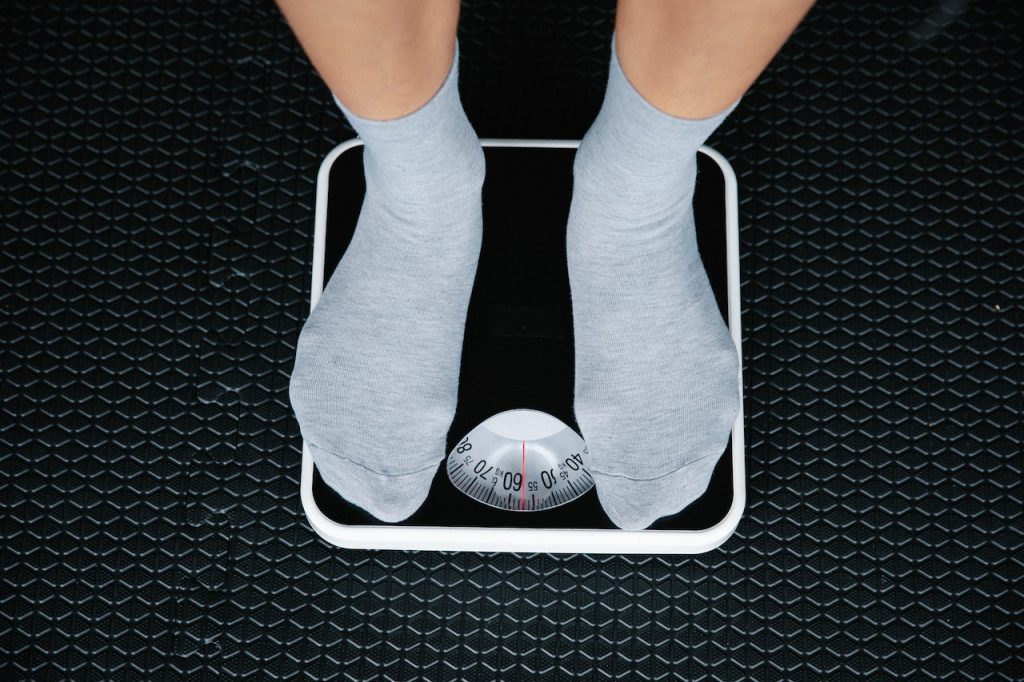This post contains affiliate links. Click here to read my affiliate policy.
Last Updated on September 25, 2022
It isn’t uncommon to encounter issues with weight management after you quit smoking. In a study on the correlation between quitting smoking and weight gain, 58% of the participants gained over one kilogram after quitting smoking. Though it can be distressing to see your weight go up initially, this shouldn’t deter you from quitting. The rate of increase in weight or body mass index after quitting varies from person to person, and fortunately, there are options to take to improve weight management. Smoking cessation aids, physical activity, and a healthy diet all contribute to curbing the effects quitting smoking has on your weight.

This article aims to shed light on how quitting can lead to weight gain, and provide you with tips on how you can manage your weight once you do quit.
Why people gain weight after smoking
Numerous factors exacerbate weight gain once you quit smoking. A few are closely linked to your appetite; cigarettes can reduce your hunger, and so quitting may increase bouts of food cravings. Similarly, smoking regularly turns the activity into a habit. As far as unlearning habits go, you may suddenly want to replace smoking with eating high-calorie foods. One significant factor that contributes to weight gain after smoking, though, is how cigarettes affect insulin resistance.
Active smoking has a direct effect on insulin resistance. Insulin is commonly known as the hormone which enables cells to absorb and use glucose, but if your body’s unable to use glucose effectively, it can store the sugar as fat. Meanwhile, cigarette smoking can increase insulin-antagonistic hormones like cortisol and catecholamines. In turn, these hormones heighten your body’s insulin resistance that triggers excess fat around the waistline (visceral obesity), high blood sugar (hyperglycemia), and weight gain. The above factors are important to recognize so you can better adapt weight management strategies that relate to your diet, physical activity, and withdrawal symptoms.
How to manage your weight after quitting smoking
Get regular exercise
Redirecting your focus towards regular physical activity can help distract you from smoking. Beyond that, exercise can stimulate your metabolism. Try taking up cardiovascular exercises like aerobics, running, or swimming, which can be personalized according to the intensity you desire. These workouts don’t only help you burn calories, they can even temporarily suppress your appetite post-workout by inducing a short-term energy deficit. Of course, it goes without saying that you should take active rest days in between workouts. If your body feels particularly sore, tack on CBD patches to help alleviate pain. These usually come in two variants, matrix, and reservoir, and the latter gives you the option to adjust how much CBD is delivered to your body. Exercise, while crucial in preventing weight gain caused by quitting, should be done healthily and sustainably.
Use nicotine replacement products
A study on the effects of nicotine on energy balance discusses how nicotine prevents weight gain by reducing appetite and increasing metabolic rate. This is because nicotine promotes energy spending and mobilizes stored energy during fasting or exercise. If you want to reduce the likelihood of weight gain, consider getting nicotine without smoking. An option you can utilize is opting for alternative products such as lozenges and pouches. Top nicotine pouches are ideal for those quitting smoking as they vary in strength and are 100% tobacco-free, eliminating the risks of tobacco-related illnesses. You can gradually switch down to a lower dose to give your body more time to adjust metabolic-wise. Similarly, best-selling nicotine lozenges have different nicotine concentrations that users can choose from based on the severity of their cravings. The above options can give you control over how to manage your craving and withdrawal symptoms while lessening weight gain concerns.
Learn how to eat mindfully
Eating mindfully doesn’t merely entail a balanced and nutrient-rich diet. Because quitting smoking may cause you to feel hungry more often, learn how to limit your portions. Portion control enables you to mediate cravings. For one, make it a habit to check food labels so you’re aware of the recommended serving size. Similarly, avoid eating from the container, especially while snacking, and put food in a small bowl instead. You should also drink a glass of water prior to every meal; staying hydrated is a good way to promote feelings of fullness. Being aware of these eating guidelines allows you to stay on top of your weight management after quitting.

